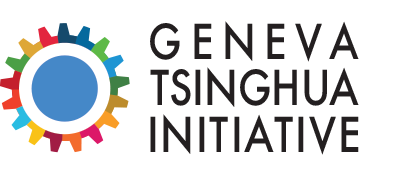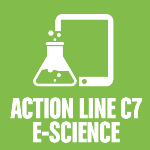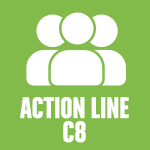Harnessing VR/AR’s Potential for Sustainable Spaces
International Telecommunication Union / Geneva-Tsinghua Initiative

Session 200
ICTs for SDGs: Scaling Awareness and Education
ICTs can both alter or perpetuate ways of thinking and experiencing reality. Join us to explore the opportunities presented by new technologies in scaling up SDG-minded projects through immersive communication. Our focal point for this panel discussion will be an examination of the actual potential of Virtual Reality and Augmented Reality (VR/AR) in altering our imagined futures and the role of WSIS stakeholders in ensuring resources for SDG-related projects. The audience will be invited to contribute to the outcome of the discussion.
VR/AR technologies are being integrated across a range of industries, whether in entertainment, medicine, journalism and communications, or education and training. Many questions arise about the possibilities and limitations such technologies have in effecting paradigm shifts towards integrated sustainability. The discussion will be focused on the beneficial potential of VR/AR to build sustainable spaces, addressing climate action and smart cities as entry points, as well as reflecting on their risks and constraints.
The potential of new technologies in helping build and maintain sustainable spaces—in all their forms—tackles a number of Sustainable Development Goals that require pioneering projects to ensure their achievements. This question of harvesting the potential of VR is also aligned with a number of UN projects, such as UN Virtual Reality.
In order to help us think about these challenges, the discussants will include:
EPFL Professor Touradj Ebrahimi, who will present the JPEG Pleno framework, which is a recent initiative by the JPEG Committee to adapt to future of imaging coding.
Jennah Kriebel, Co-Founder of Scaphe Robotics, a private company which tackles the ways to enhance the ways of robots and virtual agents to understand the environmental and social spaces they inhabit, in order to navigate their physical and/or digital (e.g. VR) worlds:
Artist Marc Lee, interested in the visions and limits of the information society. He has designed—among other net-based installations—the 10’000 Moving Cities - Same but Different interactive project;
Salar Shahna, Creative Director and CEO of World VR Forum, which is an international organisation dedicated to advancing the virtual reality industry.
The panel discussion is convened by the newly established collaboration between Geneva Tsinghua Initiative (GTI) and ITU-WSIS, this track aims to provide innovative solutions in the field of ICTs to achieve the Sustainable Development Goals (SDGs). The track will be the first of its kind to collaborate with socially-minded tech initiatives, the art world, and academia to contribute to the WSIS process.
Moderator
Alexandra Mackey, Geneva-Tsinghua Initiative (GTI), United States
Speakers/Panellists
Touradj Ebrahimi: Adjunct Professor, Swiss Federal Institute of Technology (EPFL); Convenor of JPEG standardization Committee, Switzerland
Jennah Kriebel: Co-Founder Scaphe Robotics; Lead Geneva Harvard Women Alumni in Development, Defense, and Diplomacy. Switzerland
Marc Lee: Independent artist, Switzerland
Salar Shahna, Creative Director and CEO of World VR Forum
Session's link to WSIS Action Lines
-
 C2. Information and communication infrastructure
C2. Information and communication infrastructure
-
 C3. Access to information and knowledge
C3. Access to information and knowledge
-
 C6. Enabling environment
C6. Enabling environment
-
 C7. ICT Applications: E-environment
C7. ICT Applications: E-environment
-
 C7. ICT Applications: E-science
C7. ICT Applications: E-science
-
 C8. Cultural diversity and identity, linguistic diversity and local content
C8. Cultural diversity and identity, linguistic diversity and local content
-
 C9. Media
C9. Media
-
 C10. Ethical dimensions of the Information Society
C10. Ethical dimensions of the Information Society
Session's link to Sustainable Development Process
-
 Goal 3: Ensure healthy lives and promote well-being for all
Goal 3: Ensure healthy lives and promote well-being for all
-
 Goal 4: Ensure inclusive and equitable quality education and promote lifelong learning opportunities for all
Goal 4: Ensure inclusive and equitable quality education and promote lifelong learning opportunities for all
-
 Goal 7: Ensure access to affordable, reliable, sustainable and modern energy for all
Goal 7: Ensure access to affordable, reliable, sustainable and modern energy for all
-
 Goal 8: Promote inclusive and sustainable economic growth, employment and decent work for all
Goal 8: Promote inclusive and sustainable economic growth, employment and decent work for all
-
 Goal 9: Build resilient infrastructure, promote sustainable industrialization and foster innovation
Goal 9: Build resilient infrastructure, promote sustainable industrialization and foster innovation
-
 Goal 11: Make cities inclusive, safe, resilient and sustainable
Goal 11: Make cities inclusive, safe, resilient and sustainable
-
 Goal 12: Ensure sustainable consumption and production patterns
Goal 12: Ensure sustainable consumption and production patterns
-
 Goal 13: Take urgent action to combat climate change and its impacts
Goal 13: Take urgent action to combat climate change and its impacts
-
 Goal 17: Revitalize the global partnership for sustainable development
Goal 17: Revitalize the global partnership for sustainable development